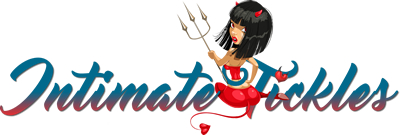What Is Hangxiety? Plus 6 Tips for Getting Rid of It
After a night of too much drinking, chances are you’ll feel it the next day when you’re hit with classic hangover symptoms: Your head is pounding. The lights seem way too bright. You’re tired, weak, and maybe nauseated.e60dc2a1-f33c-4a05-9b50-8e3e8e597629bb6ff70f-109c-4e18-96d0-819f5fbc53ee You may also be feeling anxious and worried about what you said or did the night before. It’s not just you. Feeling anxiety following a night of drinking is so common, it’s sometimes referred to as “hangxiety.”
What Is Hangxiety? What It Is Hangxiety is not a clinical diagnosis, but rather a hangover symptom that many experience. “Said shortly, hangxiety is being hungover plus anxiety,” says Rane Wallace , a licensed professional counselor and founder and owner of Fort Wellness Counseling in Fort Worth, Texas. “It’s when you are hungover after drinking while also experiencing anxiety and shame and guilt from the night before.” About 12 percent of people experience anxiety as part of their hangover, according to research published by pharmacologists and psychopharmacologists in the Journal of Clinical Medicine .e60dc2a1-f33c-4a05-9b50-8e3e8e597629783aaeb2-61b5-4550-9127-86d0efb2e060 The term “hangxiety” is now fairly widely used, though the official origins of the verbiage are unknown. Wallace says it likely popped up somewhere online and took off. It could be a result of the sober curious movement that has been on the rise in the past few years, he says. “Or it could also be a result of our culture being more and more receptive to talking about mental health and alcohol abuse.” Hangxiety includes both physiological and psychological symptoms. According to Wallace, the Alcohol and Drug Foundation, and Gill Tietz , host of the Sober Powered podcast and adjunct chemistry professor at Wentworth Institute of Technology based in Boston, hangxiety symptoms may include:e60dc2a1-f33c-4a05-9b50-8e3e8e597629d17351c3-4ae4-4eab-b72f-8dcca8f60342 Headache Nausea Trouble concentrating Irritability Worry Inability to sleep or relax Feeling shame, guilt, and regret as you try to put the pieces together from the night before Overwhelm Racing heart rate Panic attacks RELATED: Scientific Fixes to Recover From a Hangover
What Causes Hangxiety — and How Is It Different From Anxiety? Causes Many of the symptoms of hangxiety can be traced back to chemical changes that occur in the brain due to alcohol. While you’re drinking, alcohol temporarily enhances the effects of gamma-aminobutyric acid (GABA) receptor in the brain, which leads to feelings of relaxation and decreased anxiety.e60dc2a1-f33c-4a05-9b50-8e3e8e597629d0c68f17-822e-4e2e-927f-f64ee7dbcc73 But the brain wants to get back to normal. “The brain always wants to stay in balance and whatever feelings you manufacture with alcohol, the brain will cause the exact opposite feeling to maintain homeostasis,” Tietz says. “Alcohol slows down brain activity, and your brain will release neurotransmitters that speed up brain activity to counteract all the alcohol you drank,” she says. As a result, those calm feelings give way to more anxious ones once the effects of alcohol diminish. “Heavy drinking also releases cortisol , a stress hormone. And when the alcohol wears off, your body is under increased stress,” Tietz says. “Lastly, alcohol affects the electrical signals in the heart and the more alcohol you drink, the faster your heart beats.” While an increased heart rate is also a symptom of anxiety, hangxiety is different from clinical anxiety , which is marked by persistent, excessive, and intense worries and fears about everyday situations.e60dc2a1-f33c-4a05-9b50-8e3e8e597629d1eb0e41-50d1-4f35-9b9d-21d332e1a875 “The biggest difference between the two is the duration of the symptoms,” Wallace says. “With hangxiety, it can be a day or two.” An anxiety disorder, by definition, means that symptoms (excessive anxiety and worry) have been ongoing (on more days than not) for at least six months. In addition to being persistent, an anxiety disorder tends to impact various areas of one’s life, such as work or relationships, Wallace says. Hangxiety, on the other hand, is a type of everyday anxiety that people tend to experience from time to time while they’re sobering up after drinking, Wallace says. But it tends to be temporary and subside over time. RELATED: Are You Just Feeling Anxious, or Do You Have an Anxiety Disorder? Even though the two aren’t the same thing, people who have an anxiety disorder are the most vulnerable, Tietz says. To start, that could be because some anxious individuals turn to alcohol to cope, according to research.e60dc2a1-f33c-4a05-9b50-8e3e8e597629d1ebb642-a28b-4a12-8b6a-8c5ea8de995c Another study found that highly shy individuals are much more likely to experience anxiety during a hangover than those with lower shyness.e60dc2a1-f33c-4a05-9b50-8e3e8e597629a9294d57-aea6-48e2-8547-338f763f8989 “Their anxiety decreased slightly during drinking, but there was a significant increase in anxiety the next day,” Tietz says. What’s more, alcohol can worsen an existing anxiety disorder or lead to new anxiety symptoms.e60dc2a1-f33c-4a05-9b50-8e3e8e5976298c1173f7-ddf3-489c-b225-3b34d0e227d0
Tips for Getting Rid of Hangxiety What to Do About It The most obvious way to avoid hangxiety is to avoid getting a hangover in the first place. You can do that by not drinking or drinking in moderation (2 drinks max per day for men and 1 drink for women) and not binge drinking (which is defined as 5 or more drinks in 2 hours for men and 4 or more drinks in 2 hours for women).e60dc2a1-f33c-4a05-9b50-8e3e8e597629e48f20e7-b3d2-4751-b1e2-dd244e9d2a7d It’s worth noting, however. that alcohol affects everyone differently and how each person responds to alcohol depends on a variety of factors besides gender, including genetics, body weight, age, food and medications present in the stomach, and mental state.e60dc2a1-f33c-4a05-9b50-8e3e8e597629ba914995-1401-4e17-a4b6-afa9d7df1f56 RELATED: Expert Hacks for Preventing a Hangover Also, keep in mind that it’s best to avoid or limit alcohol if you’re taking an antidepressant or anxiety medication.e60dc2a1-f33c-4a05-9b50-8e3e8e5976295e9920f1-60f5-4da5-81ad-0af92e452118 But that advice does little good if you’re currently battling hangxiety. In that case, Wallace suggests treating the physical hangover by hydrating, resting, avoiding caffeine, and eating a healthy meal. Then, treat the anxiety symptoms by taking the following steps: Be kind to yourself. Ask yourself: What would you tell a friend who’s in your shoes? Would you be kinder to them than you are to yourself? Meditate or engage with a mindfulness or breathing exercise. Try closing your eyes and taking 5 to 10 deep inhales and exhales . Then start to visualize yourself in a relaxing setting, such as at the beach. Think about each of your five senses — what are you hearing? Seeing? Tasting? Smelling? Feeling? Remind yourself this experience is temporary. You’re going to be okay. Reach out to a friend. Talk through what happened the night before — but only if you think this will make you feel better. “It’s a balancing act on whether to find out exactly what happened and then also not trying to get bogged down in the details,” Wallace says. “We frequently think about the absolute worst-case scenario with anxiety, and so being told what happened might provide some evidence that the worst-case scenario didn’t happen.” Journal. Document how you’re feeling . This can be helpful to look back on the next time you’re ready to go grab a drink. Distract yourself once you’ve properly reflected. “Don’t magnify or blow it out of proportion more than it needs to be,” Wallace says. Whatever you do, don’t reach for another drink to get through the day. “That’s a bad recipe for developing more of a long-term dependence,” Wallace says. Finally, if you find yourself dealing with hangxiety regularly and suspect you need to take a closer look at your relationship with alcohol, you probably do. “People without alcohol problems don’t typically question if they have a problem with alcohol,” Wallace says. “And so, if there is any doubt, at the least talking about it and exploring that could be helpful.” Another option is taking the online self-assessment from the Alcohol Use Disorders Identification Test (AUDIT) , which can help identify possible problematic screening. RELATED: Is Alcohol Use at Any Level Actually Healthy? Reach out to a therapist for help or visit your primary care doctor to evaluate your drinking pattern and craft a treatment plan.e60dc2a1-f33c-4a05-9b50-8e3e8e597629b181631c-a170-4277-acb8-9d05a92efe21 Tietz also suggests finding support on social media, by listening to a sober podcast, or picking up a “quit lit” book that focuses on quitting or curtailing drinking.
- Foreplay is just play. Couples can engage in it however they want. According to Dr. Harper, it generally takes about 20 minutes of arousal for women to become fully lubricated and ready for penetrative sex. However, it is best to abolish the idea of "foreplay" and the "main event" of penetrative sex and work together with your partner to create a fun and intimate sexual life where everyone's needs are met.
https://www.everydayhealth.com/sexual-health/sexual-foreplay.aspx

